WordPress offers a default user management system that allows assigning various user roles, yet it might not provide the extensive control needed for every scenario. To bridge this gap, numerous WordPress user management plugins are available, empowering users to modify and enhance roles and capabilities according to their specific website requirements.

These plugins become particularly advantageous for multiauthor blogs or corporate websites that demand distinct user access levels and efficient management of user roles. In a multiauthor blog setting, individual authors possess dedicated accounts to contribute posts via the site’s backend. Similarly, in large corporate environments, establishing diverse access levels for different users is crucial. However, handling these intricate user role structures can be time-consuming without the assistance of robust user management tools.
Benefits of WordPress User Management Plugins:
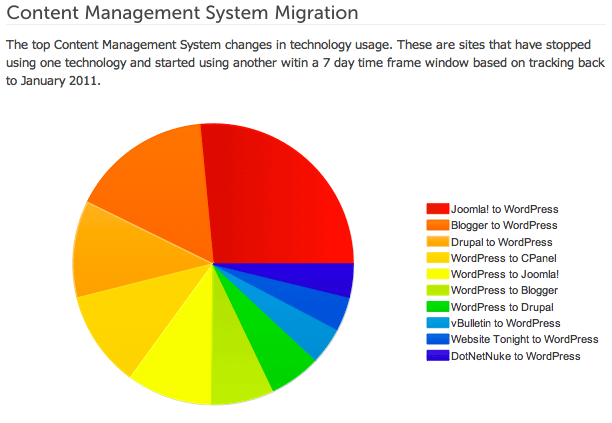
Source: Artdriver
- Enhanced Control: These plugins offer granular control over user roles and capabilities, allowing administrators to precisely define access permissions for each user category.
- Efficiency in Multiauthor Environments: For blogs with multiple authors, these plugins streamline the management of individual author accounts, facilitating smoother content submission and management workflows.
- Tailored Corporate Access: In the context of large corporate websites, plugins enable administrators to establish hierarchical access levels, ensuring that different departments or teams have appropriate permissions.
- Time-Saving Features: By automating role assignments and providing bulk user management functionalities, these tools save administrators significant time in managing user roles and access rights.
- Customization and Flexibility: Plugins often come with customizable features, enabling users to adapt role structures according to their specific needs and workflows.
- Security and Compliance: Effective user management plugins contribute to ensuring security measures and compliance, especially in industries with stringent regulations like healthcare or finance.
- Scalability: As websites grow, these plugins provide scalability by efficiently managing an increasing number of users and their respective roles without compromising performance.
Top User Management Plugins:
1. User Role Editor

The User Role Editor plugin not only addresses capabilities for each role but also extends the ability to create and customize roles to your liking. Providing an extensive list of capabilities attached to each role, this tool enables fine-tuning by enabling or disabling specific capabilities for designated roles. It offers seamless updates for any adjustments made within the settings.
This plugin caters to multisite functionalities, allowing easy deletion of roles that are no longer in use. Moreover, it facilitates assigning multiple roles to a single user and modifying default role assignments for new users. Additionally, administrators can create new capabilities and assign them on a per-user basis, ensuring precise control. Deactivating plugins leaves behind unused capabilities that can be removed for tidiness.
For more advanced features like hiding branding or specific frontend elements for select users, an upgrade to User Editor Pro is recommended. This version grants the ability to block or show individual widgets, metaboxes, and plugin access per plugin basis. Furthermore, it utilizes shortcodes not only to grant access to specific content for particular users but also to restrict post and page views for distinct roles.
2. Adminimize
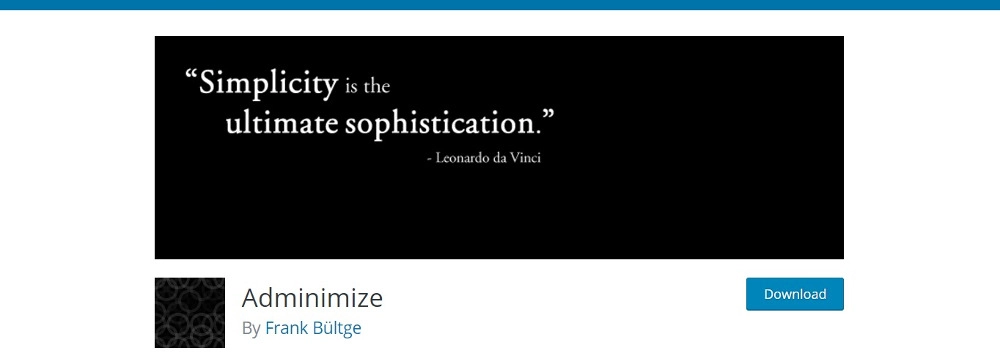
Adminimize simplifies the admin area by hiding unnecessary items based on user roles, ensuring a clutter-free interface for users. This plugin offers customization for different admin interfaces, enabling adjustments for nearly every item on the menu via the plugin’s settings page.
Configurable for each user role, Adminimize allows separate metadata settings for every page or post, ensuring a tailored approach to admin backend areas. It’s crucial to deactivate options before uninstalling the plugin to safely reset your database, should you choose not to use it anymore.
3. Members

Members is a robust plugin that grants enhanced control over user interaction on your website. Providing the ability to edit users, roles, and capabilities, it empowers administrators to tailor user privileges precisely. Its settings page allows configuration to assign multiple roles to a single user or deny specific capabilities to individual users or groups.
Furthermore, Members offers shortcodes for restricting user access to content and transforming your site into a completely private platform. It also provides widgets for login forms and user displays on the theme’s sidebars. This plugin seamlessly integrates with most standard WordPress plugins and comes accompanied by an in-depth user guide for ease of use.
4. User Switching
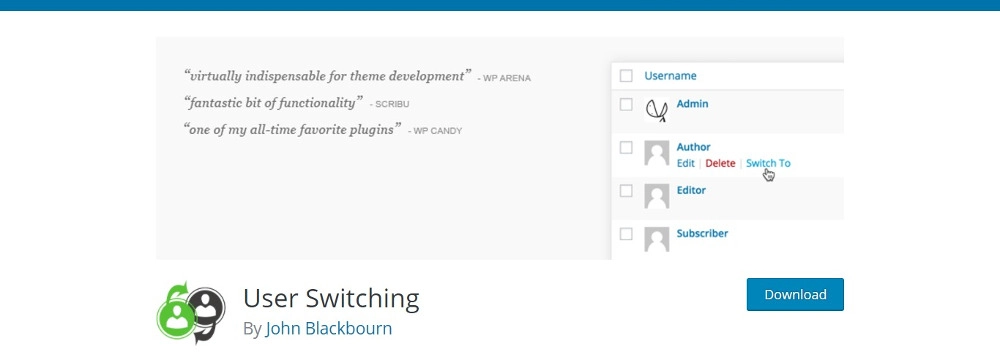
When working with WordPress, testing new functionalities or managing multiple user accounts can become cumbersome. User Switching emerges as a valuable plugin, offering a swift solution. It simplifies the process of switching between various user accounts, aiding administrators in logging out of their current account and seamlessly transitioning into another with a single click.
Within the user’s dashboard screen, this plugin integrates two new links—”Switch to” and “Switch back.” By utilizing these links, users can effortlessly toggle between different accounts. Account switching is also possible directly from the profile menu, ensuring quick transitions. What’s notable is the ability to log out of an account while retaining instant access for re-entry. User Switching is secure, compatible with multisite setups, BuddyPress, and bbPress, ensuring smooth functionality. It operates under strict user privilege limitations, allowing only authorized users with edit capabilities to switch into other user accounts, preventing unauthorized access.
Learn about content protection plugins here.
5. Peter’s Login Redirect

After users complete the registration process on your website, guiding them to the next page becomes essential. Peter’s Login Redirect steps in to streamline this crucial function. Once activated, the plugin facilitates the configuration of specific pages for users to land on post-registration by making necessary adjustments within the settings.
Administrators can set the designated pages that users must visit after registration, redirecting users based on their usernames, roles, or capabilities, ensuring a personalized user journey.
6. Advanced Access Manager
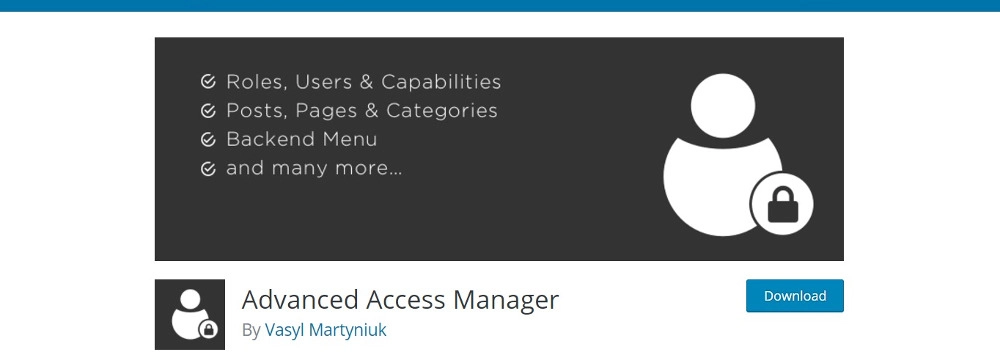
True to its name, the Advanced Access Manager plugin empowers website owners to exercise precise control over access to various site areas, including posts, pages, or custom post types. This control extends to specific users, roles, or visitors, allowing comprehensive management.
This robust plugin offers over 100 features in its free version. For advanced functionalities, premium extensions are available. These extensions enable restriction of access to categories, widgets, metaboxes, and allow specifying default access permissions for all posts and categories. Additional features include protection against brute force attacks, double authentication, media file access control, user tracking, and backend menu and content filtering capabilities.
7. WP Approve User
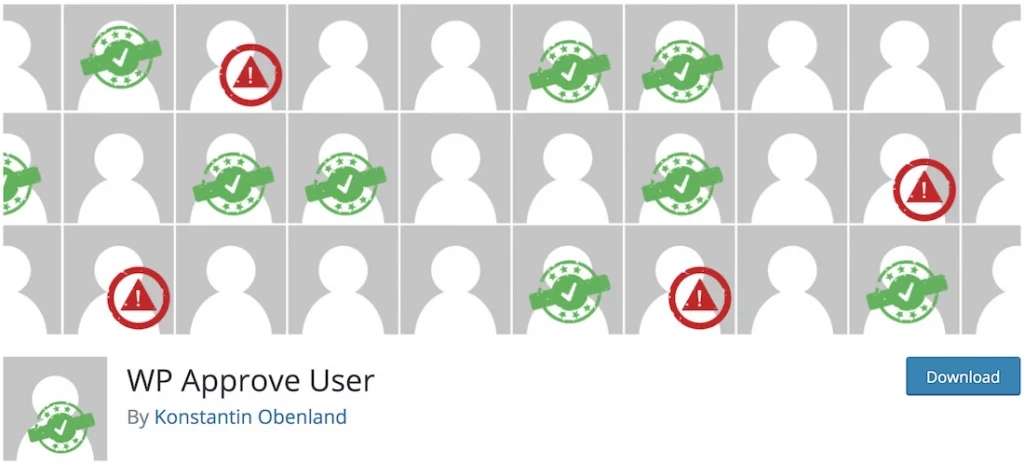
As the name implies, WP Approve User is a free WordPress plugin designed to facilitate user approval or disapproval, offering complete control over access to the admin dashboard. The plugin’s installation and activation processes are straightforward and user-friendly.
Upon activation, the plugin automatically approves multiple users who are already accessing the admin area. For new users, administrators can manually accept or skip adding them entirely. Moreover, WP Approve User is available in multiple languages, catering to a diverse user base and providing convenience.
With regular plugin updates, users can anticipate more language additions for enhanced usability.
8. Bulk Delete
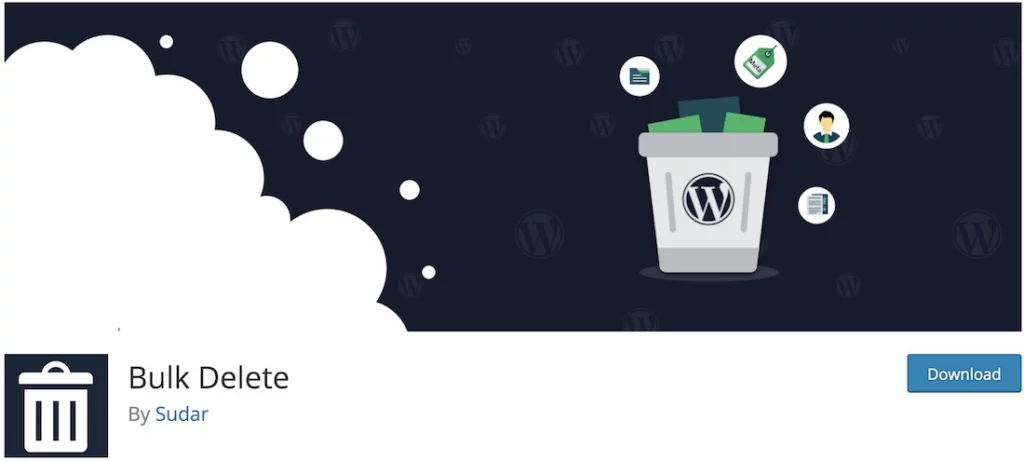
When dealing with a large volume of content on your WordPress site that needs removal, Bulk Delete stands out as a practical solution. This user-friendly plugin facilitates the deletion of posts, pages, and multiple users simultaneously. Instead of manually eliminating users, attachments, or other unnecessary data, Bulk Delete streamlines the process, saving substantial time and effort.
To ensure a hassle-free experience, the plugin allows you to set specific rules and conditions for content deletion. You can delete posts based on tags, categories, comment count, or post types. Furthermore, it provides the option to delete users based on their roles, meta fields, or registration dates. By customizing these conditions, Bulk Delete efficiently manages content deletion according to your preferences.
9. Meks Smart Author Widget
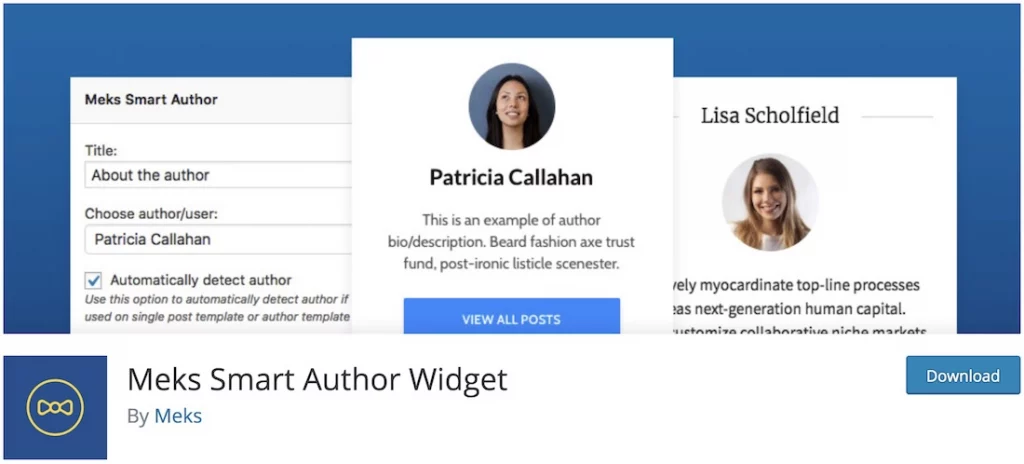
Enhancing the visual appeal of author information on your WordPress site, Meks Smart Author Widget serves as an excellent addition. This plugin creates an attractive display of author and user information within a widget, providing a more engaging and appealing appearance compared to the default display.
Offering features such as custom avatar sizes, username-based title replacements, and automatic post and template detection, Meks Smart Author Widget adds a touch of sophistication to the user experience. Users can link avatars or display names to author archives, enabling easy access to all previously created content, ultimately enhancing the overall website experience through nuanced details.
10. User Meta
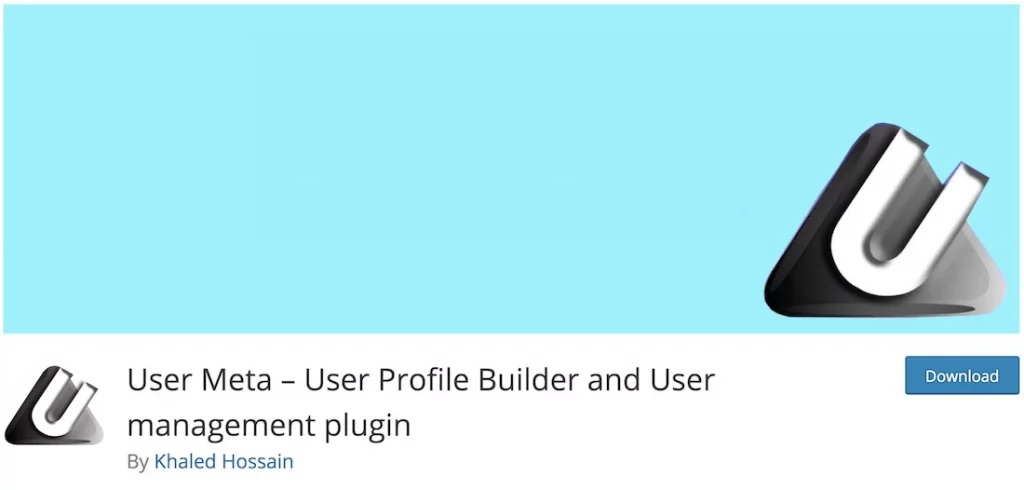
Equipped with comprehensive functionalities, User Meta is a robust WordPress user management plugin designed to offer additional capabilities to webmasters and users. Beyond effective user management, this plugin allows users to update profiles, reset passwords, and perform other essential actions while also enabling administrators to add extra fields to registration forms, all through the front-end.
User Meta features a shortcode, facilitating user registration form completion from various sections of the website. Additionally, it offers customization options for forms, enabling the creation of multiple forms, altering default email sender information, and activating conditional logic. With its range of features, User Meta elevates user management to a more advanced level.
Conclusion:
Managing users effectively on your WordPress site is crucial for maintaining security, enhancing user experiences, and streamlining content management. The array of user management plugins available offer versatile functionalities catering to specific needs, from controlling user roles and permissions to streamlining content deletion and customization.
By incorporating these plugins into your WordPress site, you gain better control over user roles, access levels, and content management, empowering you to create a more secure, organized, and user-friendly online platform.
FAQs on User Management Plugins:
Can I revert changes made by these plugins if needed?
Yes, most plugins offer options to revert changes made through their settings. However, it’s advisable to back up your WordPress site before making significant modifications.
Are these plugins regularly updated to remain compatible with the latest WordPress versions?
Reliable user management plugins receive regular updates to maintain compatibility with the latest WordPress versions and ensure security and functionality.
Do these plugins impact site performance or speed?
Most user management plugins are optimized for performance and are designed not to significantly impact site speed. However, using too many plugins or excessively complex configurations might affect performance.



